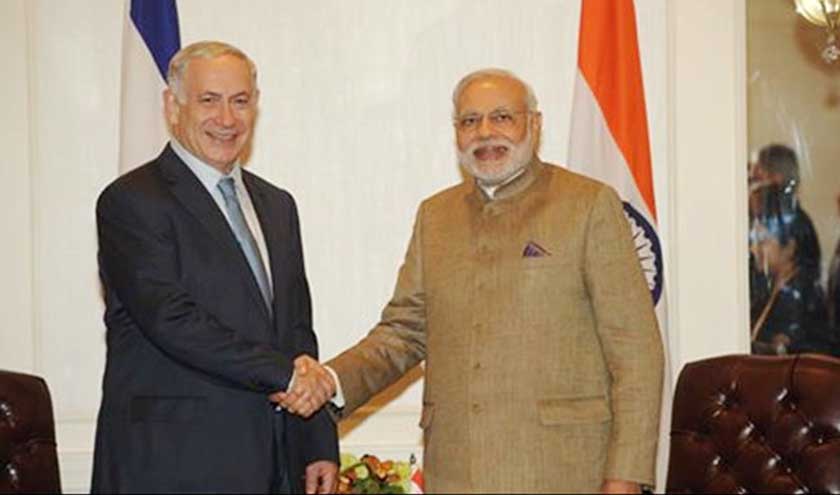
PTI, Tel Aviv :
Looking for new agriculture technology as well as high-tech weapons to fuel his military modernisation program, Prime Minister Narendra Modi is making a landmark trip to Israel, the first by a sitting Indian premier.
The visit starting today is likely to focus on security and economic ties with Israel, which is becoming a significant defense partner as India seeks advanced weaponry after relying on the Soviet Union and Russia for most of its military technology.
India has traditionally downplayed relations with Israel in part because of concerns that it would alienate the country’s 170 million Muslims. But PM Modi is skipping a similar visit to meet Palestinian Authority President Mahmoud Abbas in Ramallah.
India is one of the world’s largest arms importers and has emerged as Israel’s biggest defense buyer amid slow, bureaucratic military procurement process, even as it faces serious regional and internal security threats.
Since April, India has inked three missile deals with Israel worth $2.6 billion, two senior defense officials said, declining to be identified as they are not approved to speak about the deals.
India’s Air Force is now awaiting clearance to buy two Phalcon airborne surveillance radars from Israel at a cost of $1.16 billion, while the army is waiting for approval to buy 8,356 Spike anti-tank guided missiles from Israel’s Rafael Advanced Defense Systems, along with 321 launchers, for nearly $500 million, the two officials said. PM Modi will be seeking advanced missiles and drones, says Shashank Joshi, a senior research fellow at London’s Royal United Services Institute, or RUSI.
“Defense is a major factor pulling India and Israel together, not only because India needs arms, but also because it wants the technology inside them,” Joshi said. “India is especially interested in Israeli missiles, drones and the sub-systems that go inside larger platforms.” Israel is hoping stronger commercial ties will lead India to vote in Israel’s favor at the United Nations and in other international forums, where the Asian giant traditionally has supported the Palestinians.
Trade between the countries has grown from about $200 million in 1992, when they established diplomatic ties, to nearly $4.2 billion last year, according to Israel’s Economy Ministry figures. Alongside PM Modi’s visit, the two sides are due to set up a CEO’s Forum that will seek out opportunities for cooperation and investment.
In late June, the Israeli cabinet approved a 280 million shekel ($80 million) budget to facilitate cooperation with India in a variety of areas, including water and agricultural technology. Prime Minister Benjamin Netanyahu’s government also is trying to draw Bollywood producers to film in Israel, and to encourage tourism from India.
Notably, PM Modi will not be making a visit to the unofficial Palestinian capital of Ramallah.
Mr Abbas visited India in May, when PM Modi told him: “India has been unwavering in its support of the Palestinian cause. And we hope to see the realization of a sovereign, independent, united and viable Palestine, co-existing peacefully with Israel.”

